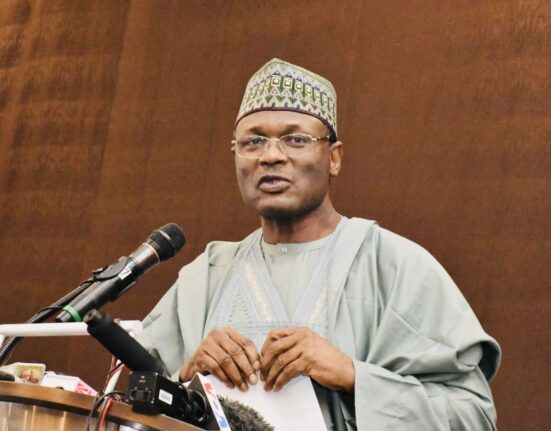In the political landscape of 2027, two prominent figures, Datti and Amaechi, have emerged as vocal advocates for a southern candidate to lead the nation. Their insistence on this matter has sparked conversations and debates across the country.
“Datti and Amaechi are strong proponents of promoting diversity in leadership,”
said a political analyst familiar with the situation.
“Their push for a southern candidate reflects a growing sentiment among the populace for equal representation and inclusivity.”
As discussions unfold regarding potential candidates, supporters of Datti and Amaechi emphasize the importance of regional balance in governance. They believe that electing a leader from the southern region would not only symbolize unity but also address longstanding disparities in political power distribution.
“Having a southern candidate at the helm would signify progress towards bridging geographical divides and fostering national cohesion,”
remarked a social commentator during a televised panel discussion.
Despite facing resistance from certain quarters advocating for continuity or alternative agendas, Datti and Amaechi remain resolute in their stance. Their unwavering commitment to championing a southern candidate signals a shift in traditional political dynamics and sets the stage for transformative possibilities in future leadership structures.
The call for a southern candidate is not merely about symbolic representation but also about addressing historical imbalances and nurturing an environment where all regions feel equally valued within the nation’s decision-making processes.
In light of these developments, citizens are engaging in rigorous dialogue, expressing varied opinions both online and offline. The public discourse surrounding the issue underscores the significance of equitable representation as a cornerstone of democratic governance.
As preparations intensify for the upcoming election cycle, stakeholders closely monitor how Datti and Amaechi’s advocacy shapes political narratives and influences voter perceptions. The outcome of their campaign may redefine conventional notions of leadership selection criteria and pave the way for new paradigms in national politics.
The fervor surrounding Datti and Amaechi’s endorsement of a southern candidate highlights broader themes of social justice, equality, and inclusiveness resonating deeply within society. Their initiative serves as a catalyst for reimagining power structures through lenses that prioritize fairness, unity, and progress for all citizens regardless of their geographic origins.
With each rally speech delivered or policy proposal articulated by Datti and Amaechi, momentum gathers behind their vision for transformative change grounded in principles of diversity-driven governance. The path they tread reverberates with hopes for an era where leadership mirrors societal plurality while advancing common aspirations shared by every corner of the nation.









Leave feedback about this